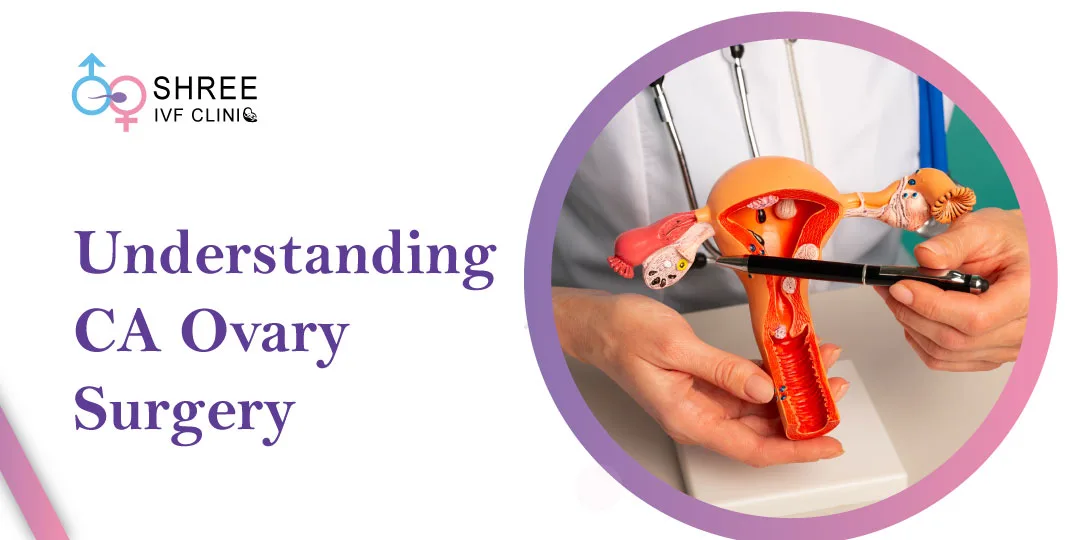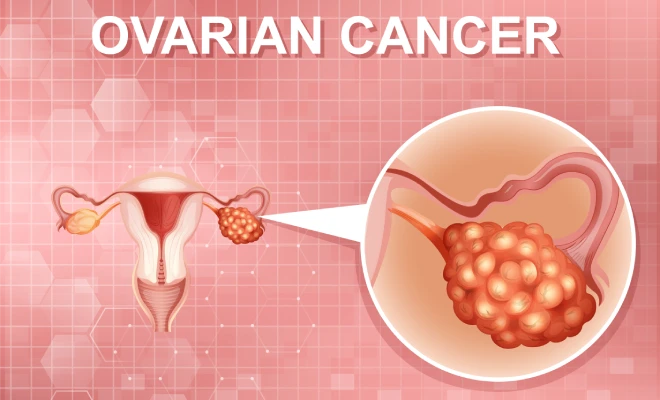CA Ovary Surgery in India: A Beacon of Hope for Women’s Health
UPDATED ON 15 NOV. 2023

AUTHOR
Dr Jay Mehta
Scientific Director & IVF Specialist with 10+ years of experience
TREATMENT
GET IN TOUCH ON
In India, ovarian cancer ranks as the third most common cancer among women. Often silent and stealthy, this disease is notorious for going unnoticed until it has spread within the pelvis and abdomen, making it more challenging to treat.
However, early-stage ovarian cancer, where the disease is confined to the ovary, is more likely to be treated successfully. One of the most effective treatments for ovarian cancer is surgery. We provides a comprehensive understanding of CA ovary surgery, aiming to equip you with practical information in a patient-centered and empathetic manner.
What is Ovarian Cancer?
Ovarian cancer is a type of cancer that begins in the ovaries. Women have two ovaries, one on each side of the uterus. The ovaries — each about the size of an almond — produce eggs (ova) as well as the hormones estrogen and progesterone. Ovarian cancer often goes undetected until it has spread within the pelvis and abdomen. At this late stage, ovarian cancer is more difficult to treat.
Read More: How to Check for Ovarian Cancer at Home?
Understanding Ovarian Surgery
Ovarian surgery is often a crucial part of ovarian cancer treatment. The primary goal of the surgery is to remove the cancer entirely. If the cancer has spread too far to be completely removed, surgery may help reduce symptoms and control the disease.
Types of Ovarian Surgery
There are different types of surgeries for ovarian cancer. The choice of surgery depends on several factors including your overall health, the type and stage of cancer, and your future childbearing plans. Here are the main types of ovarian surgeries:
- Hysterectomy: This involves removing the uterus and sometimes the cervix. In a total hysterectomy, both the uterus and cervix are removed. This procedure is often necessary when cancer has spread to these areas.
- Salpingo-oophorectomy: One or both ovaries and fallopian tubes are removed during this procedure. If one ovary and fallopian tube are left intact, conceiving and carrying a pregnancy to term might still be possible.
- Debulking surgery: This is performed if the cancer has spread to other parts of the body. The surgeon will remove as much of the cancer as possible. This can often involve removing parts of other organs where the cancer has spread.
Preparing for Ovarian Surgery
Before surgery, gynecologist or a surgeon will order certain tests to ensure you’re healthy enough for the procedure. These might include blood tests, imaging tests like ultrasound or CT scan, and a general physical examination.
Emotional preparation is also essential. Facing any surgery can be stressful, but when it involves cancer, the anxiety can become overwhelming. It’s important to discuss your fears and concerns with a gynecologist who can provide you with the necessary support and guidance.
The Ovarian Surgery Procedure
The specifics of the surgical process depend on the type of surgery you’re having. You’ll be given general anesthesia, which means you’ll be asleep during the procedure. The surgeon will make an incision in your abdomen to access your ovaries. Depending on the extent of the cancer, one or both ovaries may be removed.
After the surgery, you’ll be moved to a recovery room where our team will closely monitor you for any immediate postoperative complications. You’ll likely stay in the hospital for a few days while you begin your recovery.
Recovery and Aftercare
Recovery from ovarian surgery can take time and patience. The first few days after surgery will involve managing pain and starting to move around. You’ll be encouraged to get up and walk as soon as possible to help prevent blood clots and pneumonia.
At home, you’ll need to gradually increase your activity level. It’s important to follow your gynaecologist’s or a surgeon’s instructions about what you can and can’t do. You may need help with daily tasks until you’re feeling stronger.
Follow-up care is a key part of your treatment and safety. Be sure to make and go to all appointments, and call a gynaecologist or a surgeon if you are having problems. It’s also a good idea to know your test results and keep a list of the medicines you take.
Risks and Complications of Ovarian Surgery
As with any major surgery, ovarian surgery presents potential risks. These include infection, bleeding, damage to nearby organs, and reactions to anesthesia.
There’s also the risk that not all cancerous cells will be removed. After the surgery, some women might experience changes in sexuality, problems with fertility, early menopause symptoms (if both ovaries are removed), and emotional issues.
Benefits of Ovarian Surgery
The primary benefit of ovarian surgery is the removal or reduction of cancerous cells, which can significantly improve survival rates.
Moreover, surgery helps in staging the cancer, i.e., determining how much cancer there is and how far it has spread. This information is crucial for planning further treatment.
Alternative Treatment Options
In some cases, chemotherapy or radiation therapy might be recommended before or instead of surgery. Chemotherapy, the use of drugs to kill cancer cells, is often given after surgery to kill any remaining cancer cells, but it can also be given before surgery to shrink cancers and make them easier to remove. In some cases, radiation therapy, which uses high-energy beams to kill cancer cells, might be used.
Choosing the Right Surgeon for Ovarian Surgery
Choosing the right surgeon for your ovarian surgery is crucial. When making this decision, consider the surgeon’s experience and training, as well as their ability to communicate with you effectively. A good surgeon will answer all your questions clearly and make you feel comfortable and confident about your treatment plan.
Take control of your ovarian cancer journey with Dr. Jay Mehta, a trusted expert in ovarian cancer surgery in Mumbai. Schedule a consultation today to explore personalized and compassionate care tailored to your unique needs. Your path to healing starts here.
Life After Ovarian Surgery: What to Expect
Life after ovarian surgery can require some adjustments. Regular follow-up appointments are essential to monitor for any signs of cancer recurrence. You may also need ongoing treatment, such as chemotherapy.
Emotional support is just as important as physical healing during this time. It’s normal to have a range of feelings after surgery, from relief to sadness to anxiety. Support groups, counseling, and talking with friends and family can all help. Remember, there’s no right or wrong way to feel.
Conclusion
Ovarian surgery can be a life-saving procedure for women with ovarian cancer. With the right information and support, women can understand their options and make the best decisions for their health. The journey through diagnosis, treatment, and recovery can be challenging, but with a team of gynaecologists on your side, it can be navigated with strength and resilience.
AUTHOR
Dr Jay Mehta
Scientific Director & IVF Specialist with 10+ years of experience
TREATMENT
CONDITION
CALL US 24/7 FOR ANY HELP
GET IN TOUCH ON
Share Article on
Recommended Reading
Ovarian Cancer Types
Epithelial, Germ Cell, and Stromal are ovarian cancer types which are classified by their originating cells
How to Check for Ovarian Cancer at Home? – Dr. Jay Mehta
CA Ovary Surgery is the surgical removal of one or both ovaries to treat ovarian cancer, other ovarian tumors, or ovarian cysts.
How Do You Feel When You Have Ovarian Cancer?
One of the most lethal forms of cancer in women is ovarian cancer. This is because it frequently goes undetected at early stages to cure it effectively.




